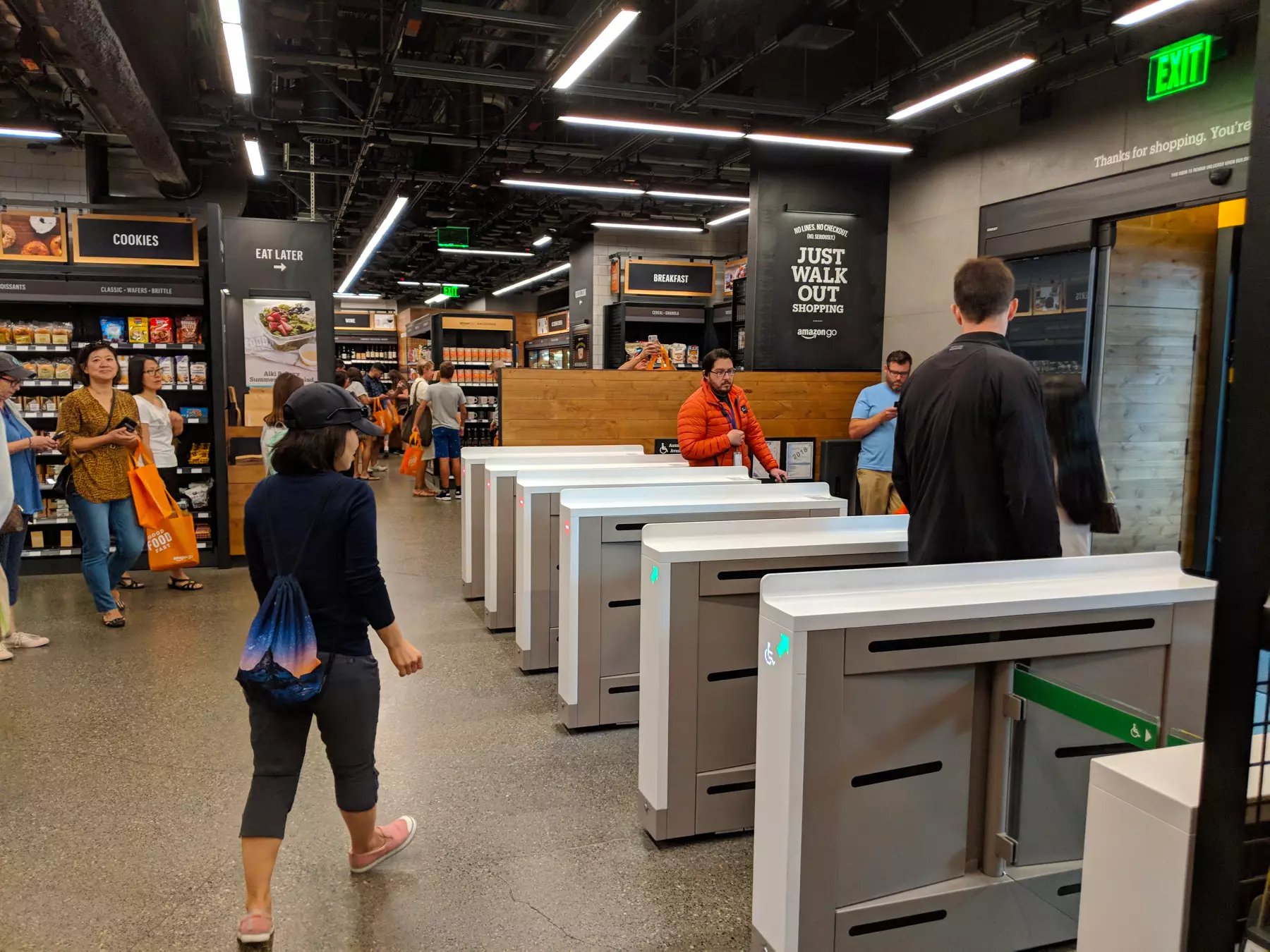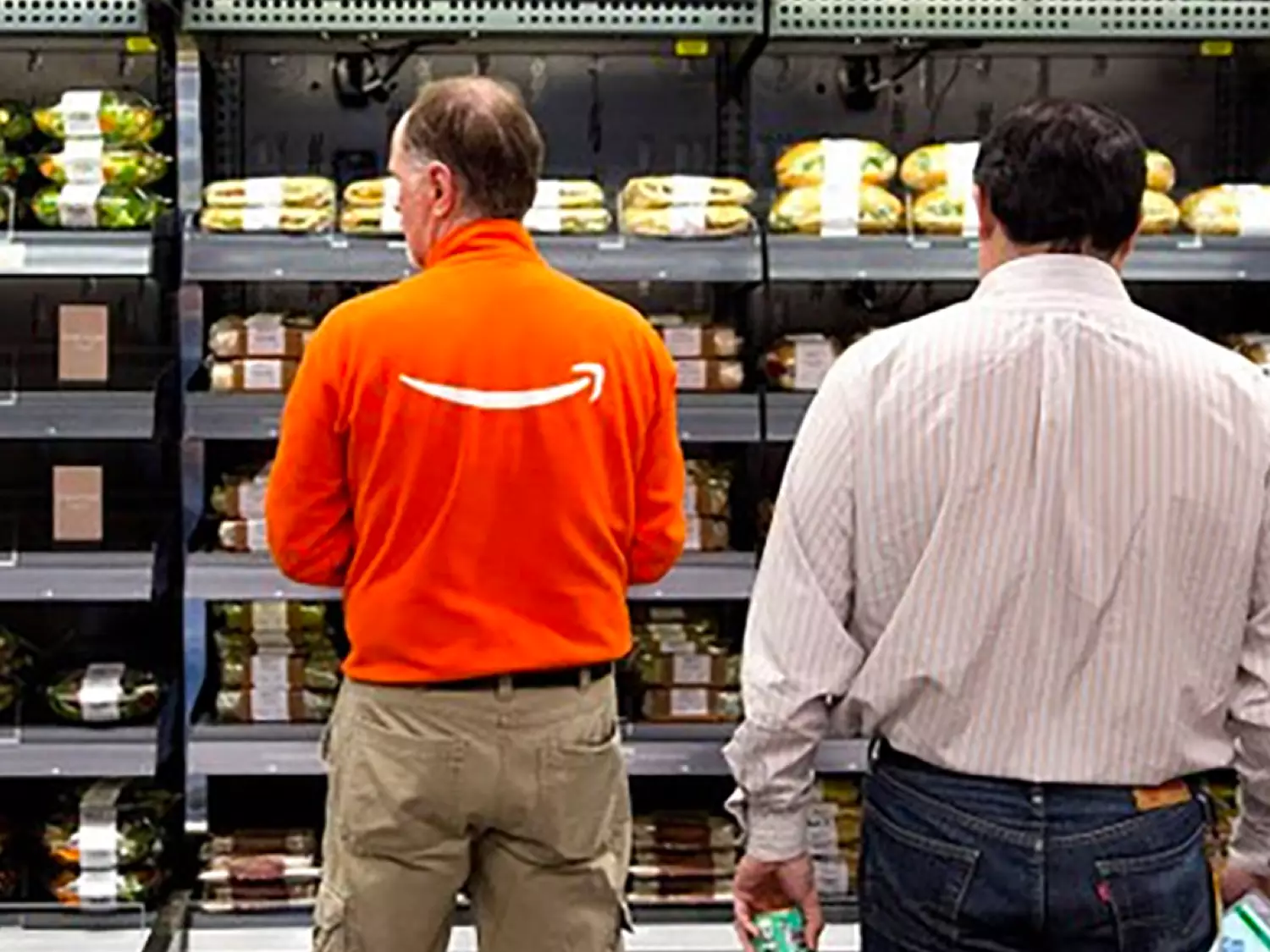Amazon Go And Its Possible Impact On The European Retail Landscape
Amazon's approach to rolling out Amazon Go stores has been slow and steady. After nearly 14 months of live testing with its own employees in Seattle it opened two more stores in the same city. A few days ago, the first Amazon Go opened up in Chicago. Amazon is looking to have ten stores operating by the end of the year, at least one in New York and one in San Francisco. The concept of the stores is still work in progress and may differ from location to location. Some may be convenience stores with prepared food and groceries, some may be Pick & Go stores for the folks trying to pick up salads, sandwiches and snacks during a break. While Amazon Go stores are typically small, the cost of opening each location is relatively high because of the technology required to make the cashierless concept work. And being cashierless doesn't mean being employee-less. Amazon will have to have highly qualified employeees on hand to maintain the technology. So Amazon may focus on products with higher margins and multiple stores in the same region to save on distribution. So, rolling out this still undefined concept to thousands of locations in a short period of time sounds unrealistic, right? Of course it does, but remember that we're talking about Amazon, a company that has been known for investing so much in its business that if often lost money. And this very company just reported a quarterly profit of $2.5 billion and his $1 trillion market cap. Let that sink in. A company that has as a record for investing heavily, a filled warchest and more businesses to cross-subsidize its offline retail efforts. ## 3.000 stores in the US until 2021 As reported by Bloomberg, Amazon is considering to open up to 3.000 Amazon Go stores throughout the US by 2021. That alone would make Amazon Go among the biggest chains in the US.
"I don’t think Amazon wants to own a piece of retail, they want to own all of it."
Scott Galloway, Professor of marketing at New York University’s Stern School of Business
Amazon will target dense urban areas with residents willing to spend a little more than a typical fast-food experience for better quality food. It's going head to head with quick-service eateries like Panera Bread, Pret a Manger, Vapiano, small restaurants and food trucks as well.

The check-in area at an Amazon Go store in Seattle
And of course it will battle with convenience stores. Let's have a look on the players in europe:
- 7-Eleven (Denmark, Norway, Sweden)
- Albert Heijn to go (Netherlands)
- CBA (Bulgaria, Italy, Greece, Czech Republic, Croatia, Hungary, Romania, Slovakia, Slovenia)
- Carrefour City (France, Italy, Slovenia, Greece, Belgium, Spain, Poland)
- Circle K (Denmark, Norway, Ireland)
- REWE City & REWE to go (Germany)
- SPAR Express (Netherlands, Austria, Belgium, Germany, UK)
- Tesco Express (UK, Czech Republic, Hungary, Ireland, Poland, Slovakia)
Not to mention countless bakeries, coffee shops (including Starbucks) and convenience sections in regular supermarkets.
In order to cover europe Amazon will obviously need to find the right locations. Looking at city centers, this doesn't sound impossible. Lots of cities are marking place for larger shopping centers to attract retailers needing more space than what's typically available in downtown areas that have been grown over the centuries instead of designed areas like in the US. Retailers are moving to those shopping centers, leaving small stores in great locations either occupied by dollar stores or small brand stores. But these locations may actually be large enough for an Amazon Go store with limited product selection. And with locations set, there isn't much to stop Amazon from rolling out. And there is no reason to believe that it's not going to get a noticeable market share. As mentioned before Amazon Go will compete with convenience stores, but it's not going to make them obsolete. It will take a share of a fast growning market and coexist with others. ## Who's going to suffer first are the quick-service eateries and convenience stores Having our office in the city center of Bonn, Germany, we can actively watch how thousands of people get out of their offices every day to have lunch. There are dozens of options to choose from. Fast food, high end burger shops, system catering, vegan restaurants, all sorts of international cuisine, food trucks at the market place, bakeries, a supermarket and convenience stores. If you live or work in an area with such possibilities you first try them all, but soon settle for a handful of choices. Something for breakfast and a coffee to go in the morning and a snack for lunch already make for ten purchases a week. With a fitting product range it's easily conceivable that at least one of those ten purchases could be at Amazon Go, more if it's more convenient to shop there (which it will be, considering the awful checkout situation at our local supermarket). ## The bigger picture and how it's going to hurt all retailers The more interesting topic is what's going to happen in the long term: ### Buying groceries while you're there anyway When you are getting your lunch at Amazon Go, why now buy that groceries you wanted to get after work right there? You're not going to do your weekly shopping at Amazon Go, but getting the most needed items while you're there anyway sounds reasonable. People will still go to their known supermarkets for their weekly shopping, but they're going to buy less items. ### The most convenient solution raises the bar It's no secret that no single person on planet earth likes waiting in line. Because there was no other way for years we just got used to it. But imagine having a better and more convenient experience somewhere else. That experience is going to be the new standard and raises the bar for everybody else. Offering a less convenient experience will feel worse and worse every time you endure it. There's no need to get all panicky, but Amazon has proven multiple times that it deserves to be taken very seriously. Looking into possible solutions and acting from the currently strong position looks like a better idea than to wait until damage has been done. We're here to help.
Share this
You may also like
These related stories

Why Are There So Many Employees In A Cashier-Less Store?

Does Scan & Go Pave The Way For Theft?
